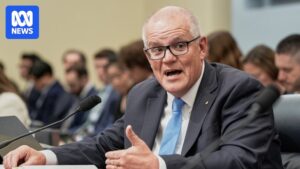
World leaders have gathered in Nairobi, Kenya, for the Global Climate Summit 2023, a pivotal event aimed at addressing the escalating climate crisis. The summit, which began on October 25, brings together representatives from over 100 countries to discuss strategies for reducing carbon emissions and promoting sustainable development.
The urgency of the summit is underscored by recent reports indicating that global temperatures are rising at an unprecedented rate, threatening ecosystems and human livelihoods. In his opening remarks, United Nations Secretary-General António Guterres emphasized the need for immediate action, stating,
“We are at a critical juncture. The decisions we make today will determine the future of our planet.”
Key Objectives of the Summit
The summit’s agenda focuses on several key objectives, including the acceleration of renewable energy adoption, the enhancement of climate resilience in vulnerable regions, and the mobilization of financial resources to support these initiatives. These goals align with the Paris Agreement, which aims to limit global warming to well below 2 degrees Celsius above pre-industrial levels.
One of the central themes is the transition to clean energy. Countries are expected to announce new commitments to phase out fossil fuels and invest in solar, wind, and other renewable sources. According to a recent International Energy Agency report,
“Renewable energy capacity is set to expand by 50% between 2022 and 2027, driven by solar and wind technologies.”
Challenges and Controversies
Despite the ambitious goals, the summit faces significant challenges. Developing nations have expressed concerns about the lack of financial support from wealthier countries, which they argue is crucial to implementing sustainable practices. This has led to tensions, with some leaders calling for increased transparency and accountability in climate finance.
Meanwhile, environmental activists have criticized the slow pace of progress, urging governments to adopt more aggressive measures. Greta Thunberg, a prominent climate activist, remarked,
“We cannot afford to wait any longer. The climate crisis is here, and it is affecting millions of people worldwide.”
Expert Opinions and Historical Context
Experts in the field highlight the importance of international cooperation in tackling climate change. Dr. Jane Goodall, renowned primatologist and environmentalist, noted,
“Collaboration is key. We must work together, across borders and sectors, to protect our planet.”
Historically, climate summits have been pivotal in shaping global environmental policy. The 2015 Paris Agreement, for example, marked a significant milestone in international climate efforts. However, experts caution that past commitments have not always translated into action, stressing the need for accountability and follow-through.
Looking Ahead: Implications and Future Steps
The outcomes of the Global Climate Summit 2023 will have far-reaching implications for global climate policy. As nations reconvene in the coming days to finalize agreements, the world watches closely, hoping for decisive action that will pave the way for a sustainable future.
Moving forward, it is crucial that countries not only commit to ambitious targets but also implement concrete measures to achieve them. This includes investing in green technologies, enhancing climate education, and fostering public-private partnerships to drive innovation.
The summit represents a critical opportunity for world leaders to demonstrate their commitment to combating climate change. As the event progresses, the focus will remain on translating promises into tangible actions that can safeguard the planet for future generations.







